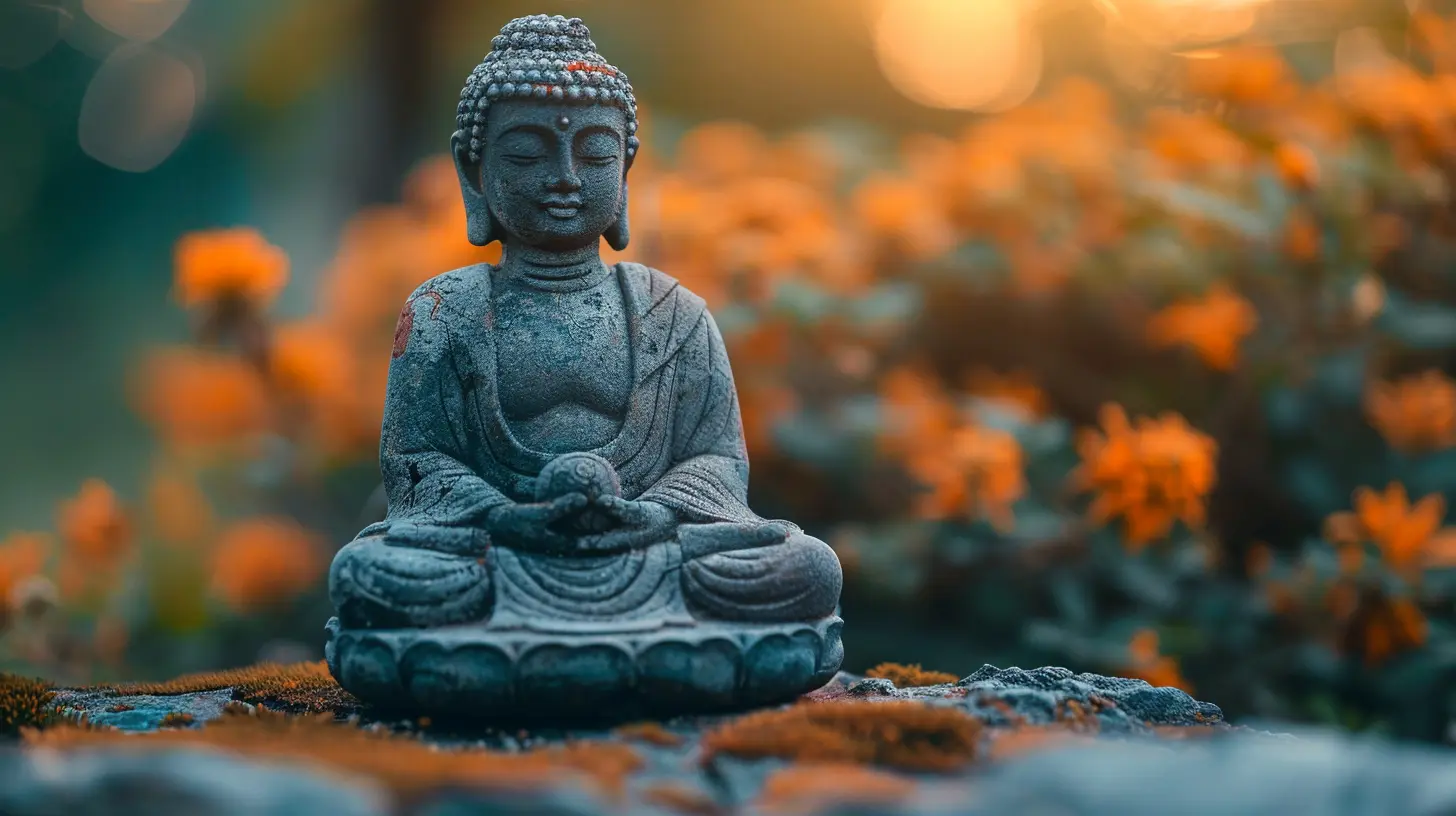Mindfulness and Compassion: How One Supports the Other
19 May 2025
Introduction
Ever felt like your mind is running a marathon while your emotions are trying to keep up? Life can be overwhelming, and we often find ourselves caught up in stress, negativity, or even self-doubt. That’s where mindfulness and compassion come in. These two practices, when combined, create a powerful synergy that fosters inner peace, resilience, and emotional intelligence.
But how exactly do mindfulness and compassion support each other? And why are they so essential to our well-being? Let’s dive deep into this fascinating connection and uncover how they work hand in hand to transform our lives. 
Understanding Mindfulness
Mindfulness is the art of being fully present in the moment, without judgment. It’s about paying attention to our thoughts, emotions, and surroundings with an open and curious mind. Instead of dwelling on the past or worrying about the future, mindfulness teaches us to experience life as it unfolds.Practicing mindfulness can help us:
- Reduce stress and anxiety
- Improve focus and concentration
- Enhance emotional regulation
- Develop a greater sense of self-awareness
But here’s the thing—mindfulness isn’t just about quieting the mind. It’s also about cultivating awareness with kindness and acceptance. And this is where compassion naturally enters the picture. 
What is Compassion?
Compassion is the ability to feel empathy for others and take action to alleviate their suffering. It’s like a warm hug for the soul—whether directed at others or ourselves.Compassion isn’t just a feel-good emotion; it has real, tangible benefits. Studies show that people who practice compassion experience:
- Greater emotional resilience
- Reduced stress levels
- Stronger connections with others
- Higher levels of happiness and overall well-being
But compassion isn’t just about showing kindness to others. Self-compassion, in particular, is a game-changer. It means treating yourself with the same care and understanding that you would offer a close friend. And guess what? Mindfulness is the key to unlocking that self-compassion. 
How Mindfulness Nurtures Compassion
1. Awareness of Suffering
You can’t be compassionate if you don’t recognize suffering—whether it’s in yourself or others. Mindfulness sharpens our awareness, helping us notice pain without turning away from it. Instead of avoiding discomfort or pushing negative emotions aside, mindfulness encourages us to acknowledge them with an open heart.When you become more mindful, you start seeing suffering as a universal human experience. This understanding makes it easier to approach yourself and others with genuine kindness.
2. Breaking Free from Judgment
Let’s face it—our minds love to judge. We judge ourselves for our mistakes, and we judge others for theirs. Mindfulness helps break this habit by fostering a non-judgmental awareness.When you observe your thoughts and emotions without labeling them as "good" or "bad," you create space for compassion. Instead of criticizing yourself for feeling anxious, for example, you can acknowledge your emotions with kindness: "I see that I’m feeling anxious right now, and that’s okay."
This shift in perspective makes it easier to offer the same understanding to others.
3. Responding Instead of Reacting
Think about the last time you snapped at someone out of frustration. Chances are, you weren’t fully present in that moment. Mindfulness teaches us to pause before reacting, giving us the chance to respond with compassion rather than anger.When you practice mindfulness, you become more aware of your emotions as they arise. Instead of letting anger dictate your actions, you learn to take a deep breath, reflect, and choose kindness instead. This small change can transform your relationships and how you interact with the world.
4. Strengthening Emotional Resilience
Life is full of ups and downs, but mindfulness and compassion help us navigate challenges with grace. Mindfulness keeps us grounded in the present, while compassion provides the emotional warmth needed to heal from difficulties.When faced with setbacks, mindful self-compassion can be incredibly powerful. Instead of beating yourself up over failure, you can offer yourself words of encouragement: "I’m doing my best, and that’s enough." Over time, this practice builds resilience, making it easier to bounce back from struggles. 
How Compassion Deepens Mindfulness
1. Creating a Safe Space for Mindfulness
Have you ever tried to be mindful, only to be bombarded by self-criticism? It’s hard to stay present when your inner critic is on full blast. This is where compassion steps in.When you approach mindfulness with self-compassion, you create a safe and supportive environment for practice. Instead of feeling frustrated when your mind wanders, you can gently bring your attention back with kindness. This self-acceptance makes mindfulness feel less like a chore and more like a nurturing experience.
2. Encouraging a Softer Perspective
Mindfulness can sometimes be mistaken for strict self-discipline. Some people view it as a rigid practice, focusing solely on controlling thoughts and emotions. But when combined with compassion, mindfulness becomes softer and more approachable.Compassion reminds us that mindfulness isn’t about "getting it right" but about showing up for ourselves with warmth and patience. This perspective makes mindfulness sustainable, allowing us to embrace the practice with an open heart.
3. Deepening Connection with Others
When we cultivate compassion, we naturally become more understanding and patient toward others. This newfound empathy enhances our mindfulness practice, making us more present in our interactions.Instead of being lost in thought during a conversation, compassion encourages us to truly listen and engage. This mindful presence not only strengthens our relationships but also fosters deeper connections with those around us.
Simple Ways to Integrate Mindfulness and Compassion into Daily Life
You don’t need to meditate for hours to reap the benefits of mindfulness and compassion. Small, intentional actions can make a big difference. Here are a few simple ways to incorporate both practices into your daily routine:1. Start Your Day with Gratitude
Before you even get out of bed, take a moment to think of something you’re grateful for. Gratitude naturally cultivates both mindfulness and compassion, setting a positive tone for the day.2. Practice Loving-Kindness Meditation
Spend a few minutes silently repeating phrases like:- "May I be happy."
- "May I be healthy."
- "May I be free from suffering."
Extend these wishes to others as well. This simple practice strengthens both mindfulness and compassion.
3. Engage in Mindful Listening
The next time you have a conversation, truly listen without thinking about how you’ll respond. Be fully present and approach the interaction with an open heart.4. Be Gentle with Yourself
Notice when you’re being self-critical and replace harsh thoughts with kindness. Treat yourself the way you would treat a dear friend.5. Take Mindful Pauses
Throughout the day, pause for a few deep breaths. These mindful moments create space for compassion and emotional awareness.Conclusion
Mindfulness and compassion are like two wings of the same bird—they need each other to soar. Mindfulness grounds us in the present, while compassion brings warmth and understanding to our experiences. Together, they create a powerful foundation for emotional well-being, personal growth, and deeper connections with others.By weaving these practices into our daily lives, we cultivate a more peaceful and compassionate world—starting from within. So why not take a deep breath, show yourself some kindness, and embrace the beauty of the present moment?
all images in this post were generated using AI tools
Category:
MindfulnessAuthor:

Janet Conrad
Discussion
rate this article
3 comments
Dana McAllister
Mindfulness deepens compassion's impact.
May 25, 2025 at 3:54 AM

Janet Conrad
Thank you! Absolutely, mindfulness enhances our ability to empathize and connect with others, making compassion more profound and effective.
Darrow McQuaid
Mindfulness cultivates compassion; without it, true empathy remains unattainable. Prioritize both for genuine growth.
May 24, 2025 at 3:41 PM

Janet Conrad
Thank you for your insightful comment! I completely agree that mindfulness is essential for fostering genuine empathy and compassion, paving the way for deeper personal growth.
Xander Wagner
Mindfulness without compassion is incomplete; true growth arises when we embrace both for deeper connection and understanding.
May 24, 2025 at 3:51 AM

Janet Conrad
Thank you for your insight! I completely agree—mindfulness and compassion together enhance our personal growth and foster genuine connections.



